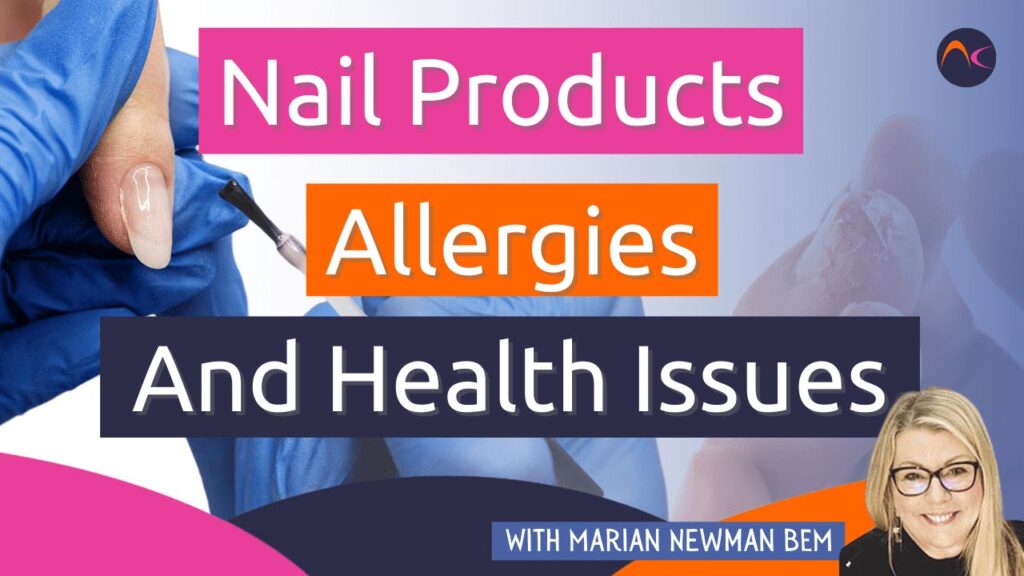The message seems to be getting out in the industry that allergies to certain ingredients/monomers has a wide impact on other health issues. Not just the health of the nail plate and the skin, not to mention eyes, lungs etc.!
HEMA is NOT the worst ingredient. There are many! No one will know what a nail professional, nor their clients will know, what they are allergic to until a dermatological allergy test (acrylate specific) is carried out.
Changing brands is NOT the solution! The allergen may be present in the new brand.
This type of allergy can destroy a career (it has done for many), and it can also result in clients being unable to wear any type of acrylate nail coating, e.g. UV gel polish, UV gel or L&P enhancements. Meaning, lost career or lost clients unless they are happy with traditional nail polish.
The known health issues are this needing dental work or this needing orthopaedic work that involve joint replacements. If anyone is allergic to any acrylate, they need to inform their dental surgeon and orthopaedic surgeon as this could prevent or impede this type of work.
The acrylates used in many nail products are used in a wide variety of products, including hearing aids.
Before we go on to another issue, I must stress that this situation is entirely avoidable!
- Nail coating products MUST NOT touch the skin.
- High levels of monomers in nail coatings are to be avoided (info is available on reliable SDS)
- Matched systems must be used. A UV lamp that has been tested to properly cure is essential
- High percentages of monomers will not be properly cured and will be trapped in the coating
- These can leach out during wear and some are water soluble so can leach out during hand washing etc.
- Removal during soaking or buffing off (or even finishing) will release these trapped monomers onto the skin and the air being breathed in.
Those nail pros that are sensitive or want to avoid skin contact should wear nitrile gloves, a new pair for every client. Those that are already allergic need to wear double nitrile gloves, a skin barrier and change them every 15-20 minutes.
The next issue is a monomer that is common in some nail coatings: isobornyl acrylate, and it is commonly used in temporary skin adhesives.
This is very relevant to cancer patients and diabetics. These patients often need to have medical mechanisms attached to their skin. It also applies to sticky plasters used daily for superficial cuts and abrasions.
Many are already allergic to this type of skin adhesive. By using a product with IBOA and it touches the skin or is not properly cured can result in a major allergic reaction.
Now this may be the result of the skin adhesive BUT improper use of nail coatings can tip these clients over the edge into unwarranted reactions!
Allergies must NOT be taken lightly! Improper use, unmatched systems or poor-quality products all have a major impact on the health of our clients!
Believe in the science! No nail pro is a cosmetic scientist nor a dermatologist. Take your profession seriously. Use professional ethics to make sure both you and your clients are as safe as you can possibly be.
Allergic reactions are, almost, totally avoidable! Elevate the industry and don’t keep providing the perfect situation where you or your clients have serious health issues!


